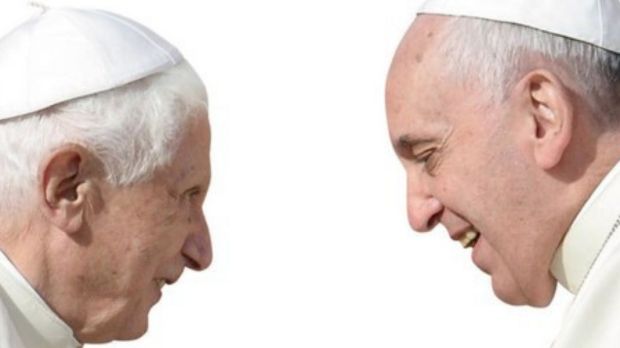Thursday 21 July 2022
~
1. Holy See’s diplomatic chief hopes for continued dialogue with China
2. Leonardo Boff sees no theological or dogmatic barrier to the priesthood for women
3. Will Pope Francis rewrite the rules for resignation?
~
Holy See’s diplomatic chief hopes for continued dialogue with China
For the second part of his interview with the Jesuit magazine America, Archbishop Paul Richard Gallagher, Vatican Secretary for Relations with States, gives an update on relations between the Vatican and the People’s Republic of China. He acknowledges that the outcome of the 2018 agreement is not “terribly impressive,” with only six episcopal appointments. “I suppose we would have liked to see more results, and there’s much work to be done,” he remarks, hoping for a revival of direct contacts after a long pause linked in particular to the COVID-19 pandemic. Archbishop Gallagher reveals that after his meeting with the Foreign Minister Wang Yi in Munich in 2020, papal diplomacy wanted to prepare “the way for a meeting between Xi Jinping and the Holy Father.” “I think the Chinese are in agreement that there should be a gradual raising of the level of direct contact between us,” Archbishop Gallagher explained, estimating that the provisional agreement of 2018 could be renewed for another two years. Cautious about the situation of Cardinal Zen in Hong Kong, he hopes that “the matter can be resolved satisfactorily in the near future.” He also returned to the situation in the Holy Land, recalling “the Holy See’s commitment to the two-state solution.” Contacts with the Israeli authorities are rare, but Archbishop Gallagher met with the U.S. ambassador to the Holy See on the occasion of the recent visit of U.S. President Joe Biden to the Holy Land, and he hopes to see the U.S. reinvest in the issue.
America, English
Leonardo Boff sees no theological or dogmatic barrier to the priesthood for women
“There are no doctrinal or dogmatic barriers to women’s access to the priesthood,” writes Brazilian theologian Leonardo Boff in an article published in Religión Digital. The ex-priest and a supporter of liberation theology, points out that “Jesus was followed not only by apostles and disciples, but also by many women who […] never betrayed Jesus, which cannot be said of the Apostles.” “If a woman, Mary, could give birth to Jesus, her son, how could she not be able to represent him sacramentally in the community?” he wonders. Boff sees this as “a flagrant contradiction, understandable only in the context of a patriarchal, sexist Church composed of celibates in the body of leadership and animation of the faith.” However, opening the priesthood to women does not mean modeling it on the male priesthood, he also believes. “It must be a singular priesthood, according to the woman’s way of being, with all that denotes her femininity on the ontological, psychological, sociological and biological levels. She will not be the priest’s substitute. She will perform the priesthood in her own way,” Boff explains. Despite its “overly clerical and male-dominated” hierarchy, the theologian says he is convinced “there will come times in which the Roman Catholic Church will adapt its pace to that of the worldwide feminist movement, along with other Christian Churches that have women as priests and even bishops, and with the world itself.”
Religion Digital, Spanish
Will Pope Francis rewrite the rules for resignation?
With speculation running rife about whether Pope Francis could resign, Catholic News Agency journalist Andrea Gagliarducci analyzes what the Argentinian Pontiff has actually said on the matter and how it aligns with his wider project of reform of the Roman Curia and the Catholic Church. Firstly, there is a clear difference in how Pope Francis and his predecessor, Benedict XVI, conceive their role after resignation. Pope Francis said he would not want to hold the title of Pope Emeritus, but rather Bishop Emeritus of Rome, and would dedicate himself to the poor and to hearing confession. “Benedict XVI distinguished between the munus and the officium, that is, between the function and the exercise of the function,” explains Gagliarducci, saying that with the structure conceived by the German Pontiff he “remains pope forever.” Instead Francis would want to not “separate munus and officium.” “One ceases with the cessation of the other, and whoever renounces them returns to their previous life,” explains the article, meaning that if Pope Francis renounced “he would no longer have the Petrine primacy and therefore would return to work in public life.” “By the admission of Pope Francis himself, everything in recent years has worked for the extraordinary character of Benedict XVI. But would it work the same with another pope emeritus?” the journalist wonders.
Catholic News Agency, English

